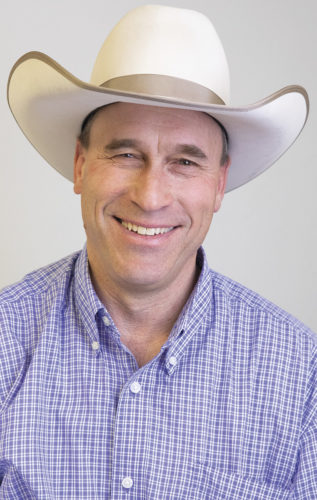In the late spring, the view of the Rubies, from any direction, is nothing less than impressive.
To nearly any native of the Great Basin or Rocky Mountain country, late spring is a time that is truly appreciated. After a winter that is generally cold, windy and unforgiving, you can finally venture outdoors without a coat and winter boots although, regardless of the season, it’s wise to at least have a vest within reach.
The natural beauty of the freshly green meadows and hayfields, contrasted with the brightness of the snow on the peaks and north-facing hillsides, is enough to give pause to even the most unobservant atheist.
You’re not yet faced with the dust and the brutal, dry heat and dull brown colors of late summer and early fall. If you’re ever going to be an optimist, it’ll probably be in the late spring.
The sight of the Rubies triggered a discussion on which mountains were most worthy of awe. My mother, who was raised in the shadows of the Ruby Mountains, was understandably a little partial to the mountain range in our immediate view but has, in the decades since her departure from her childhood home, grown partial to the alpine country of central Idaho and the German Alps, near the home regions of her ancestors.
To my father, the grandest of views will probably always be the High Uintas of northeastern Utah, his native country. Sadly, that country has been discovered by the masses and serious thoughts of ranching and agriculture are now mostly just that: quaint thoughts of a bygone era.
My sister refuses to even attempt to look beyond the Albion Range of south-central Idaho and the comfort of home that sits beneath Cache and Independence peaks.
My daughter and son-in-law, who have transplanted themselves along with my grandchildren in Johnson County, Wyoming, have developed a real fondness for the Bighorns. The land that has always captured my lust is southwestern Montana, where you can see cows and grass and mountains forever.
I have a son, currently residing in West Virginia, who even had the audacity to suggest that the Blue Ridge Mountains and the Shenandoah Valley might give our rugged West a serious challenge in terms of gorgeous natural landscape. And, if you think you’re a scrapper, I dare you to tell Julie Dotson Brown there is a prettier place on God’s dear earth than her beloved Missouri Ozarks.
I don’t know the right answer, for sure. As a matter of fact, that may actually be the right answer – that there is no wrong answer. I know that’s kind of a cop-out, BS answer. It didn’t really work for me in college. However, I think it’s fitting for cow and dirt people, even though it’s not as simple as the nonsensical notion that everyone is right about whatever they want to believe.
Over the years – and it didn’t really take me long to develop this trait – I’ve formed a genuine rural arrogance. I see it in a lot of country folk. I think I know how to appreciate just about any pretty mountain or rough country. It isn’t born out of some sense of superiority I’ve gained simply by living in a certain place, unlike the vibe I sometimes feel from some of my urban friends.
Rather, I think it comes from a combination of many things. It comes from genetics, the DNA from a long line of honest hard-working people. I didn’t have to work for that part of it. It comes from forced labor – endless hours spent picking rocks, feeding calves, shoeing horses, building fence and trailing cows.
A ranch or farm kid develops a sort of Stockholm Syndrome relationship with the land. It may control what you can do and when you can do it, but you love it anyway. It comes from the need, which eventually turns into a desire, to defend what you do against the ignorant onslaught of criticism that seems to come from every side.
It comes from the seasonal beatings heaped on you by Mother Nature and the singular camaraderie you develop with those other cowboys and dirt farmers who are competing against you for the same dollar.
So if you hail from the Sandhills or the Flint Hills, the hill country, the Front Range, the Tetons, the western slope of the Sierras or the prairie, or if you’ve ever pulled a calf, dug a posthole, hauled a bale of hay or wrecked a swather, you’re allowed a little bit of rural arrogance. Just remember to be humble about it. ![]()

-
Paul Marchant
- Writer
- Progressive Cattleman
- Email Paul Marchant







